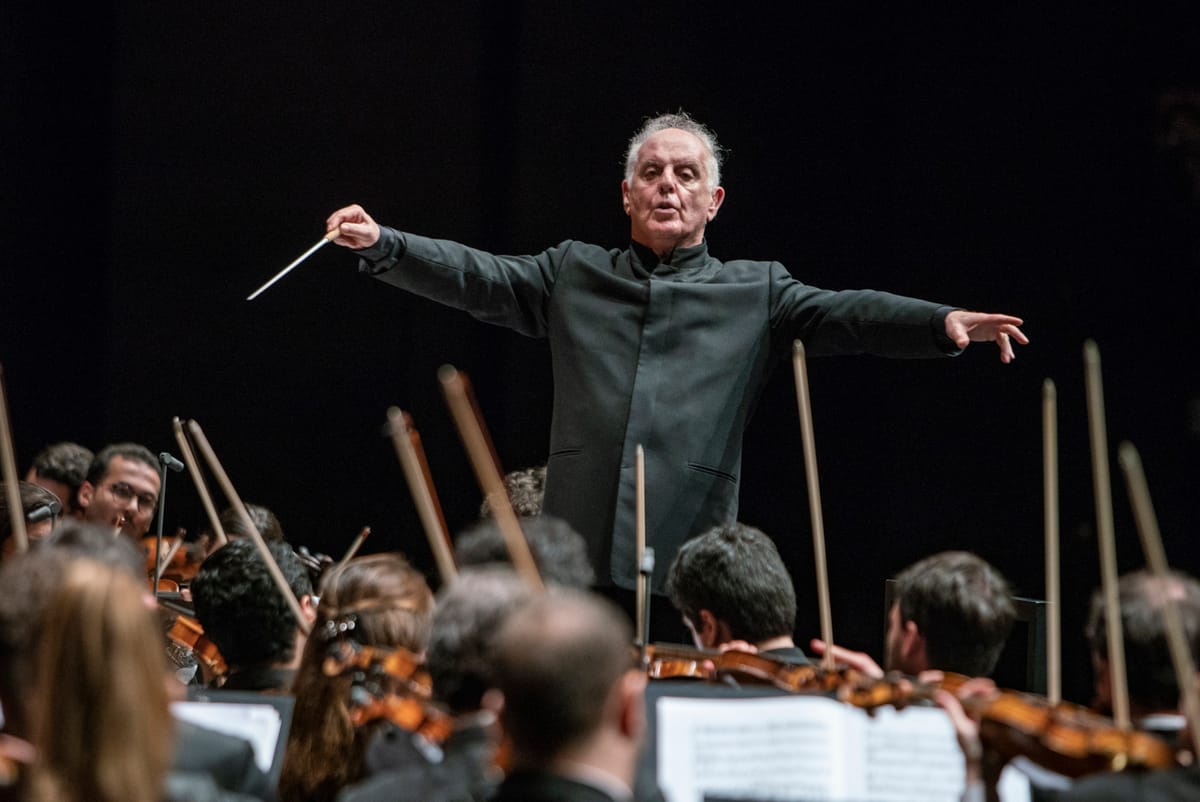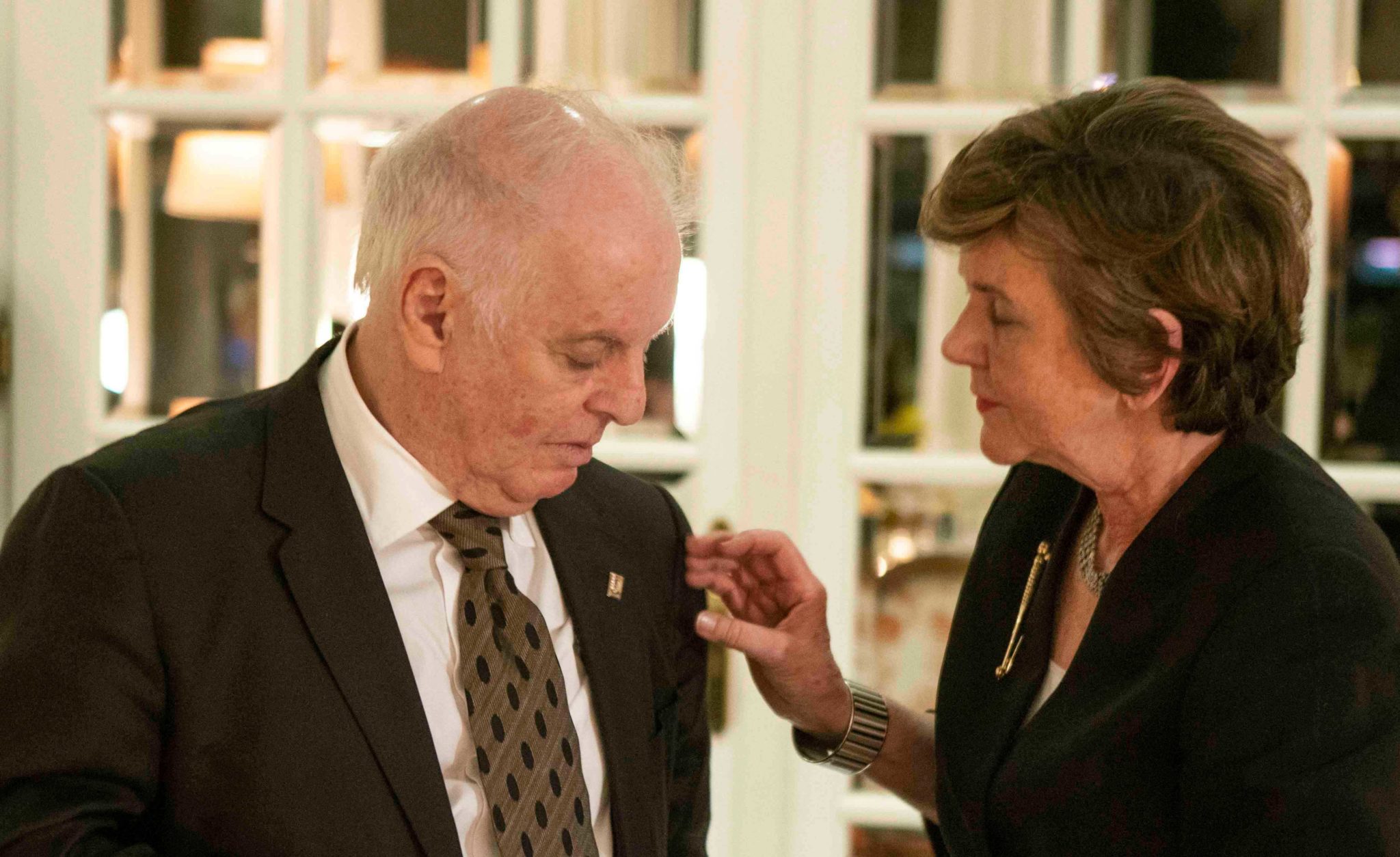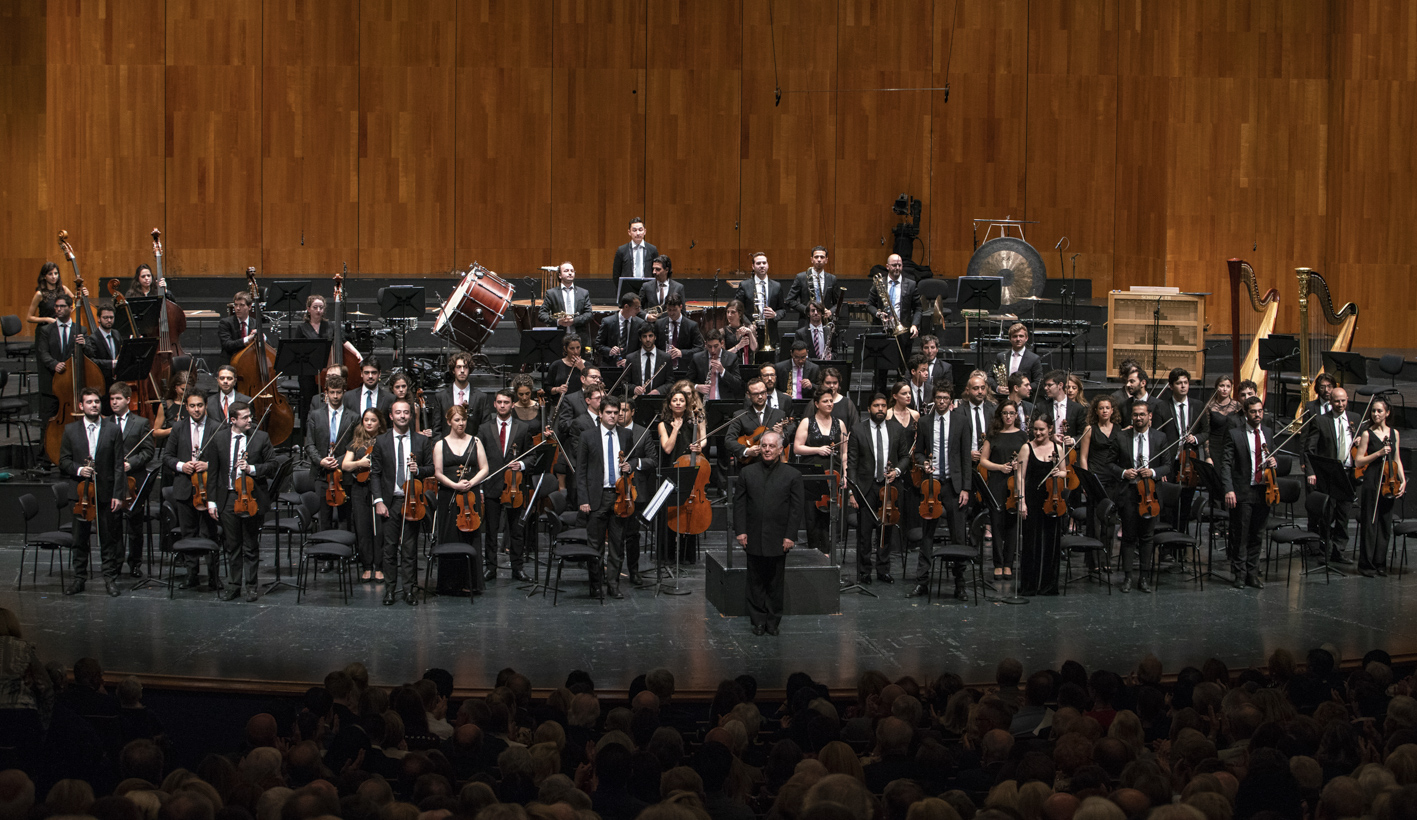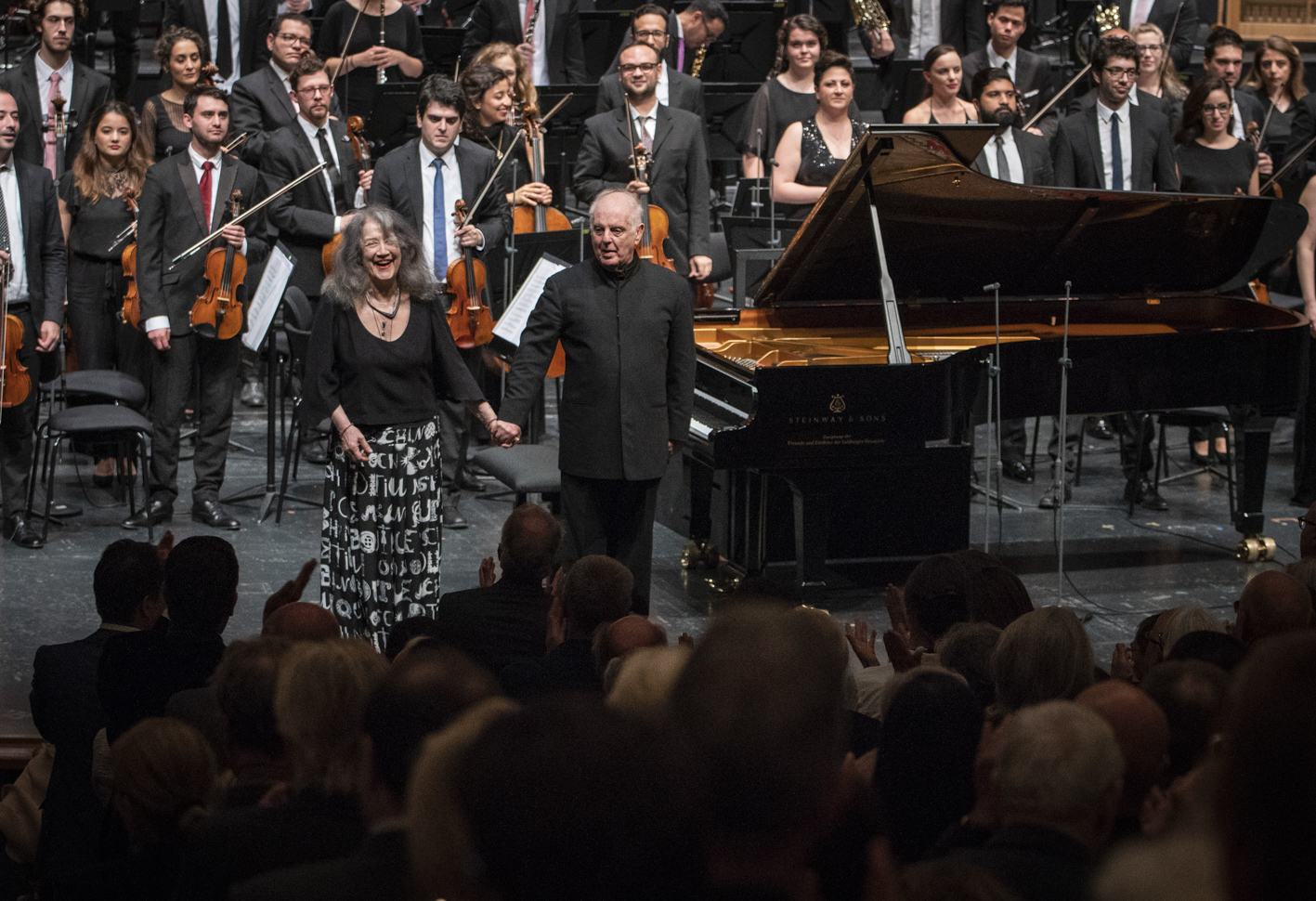“Music as an expression of humanity has suffered; that is what we must fight against.” – Daniel Barenboim

The turn of the year is always an occasion to look back and gaze into the future. The Festival’s President talks to Daniel Barenboim, who has been a Salzburg Festival artist since 1965, who contributed decisively to the success of the centennial edition in the special summer of 2020 as a pianist and conductor of his West-Eastern Divan Orchestra, and who – of course, one might be tempted to say – will also feature in two concerts on the 2021 Festival programme.

Helga Rabl-Stadler: Daniel Barenboim, how would you describe the year 2020 in retrospect?
Daniel Barenboim: I think it was a particularly difficult year. There has never been a global problem of this dimension. Even in World War II, there were places where one could escape. Today, we are all slaves to this pandemic. There are very different aspects of this we must keep in mind. Of course the first consideration must be health, all over the world and for everyone. The second consideration must be the huge economic problems. It is terrible that so many people have been driven into poverty by the pandemic. And third, one must not forget that this pandemic attacked all of us. We cannot relax our thinking. A great nervousness has gripped all our human and professional relationships. There are people who are more fearful than others, but we are all under pressure.
HRS: What is the role of culture in our world today? How could culture and the arts lend us strength in these energy-sapping times?
DB: We must recognize that our treatment of the arts and culture during recent years has not been forward-thinking. Both young musicians and the audience are less educated today. One must acknowledge this in all honesty. Young musicians are trained; they become specialists, wonderful violinists or oboists, for example, playing their instrument, but their knowledge, their overall culture has often been neglected. However, when you play Beethoven, who has been performed a lot this year, you must know who Goethe was, who Schiller was, and you need to be familiar with their ideas, for these are part of the content of his music. The other side of the coin is the audience: a large part of the audience has less musical education than it used to. In the 1970s Arthur Rubinstein told me that his audience at the beginning of the 20th century had played Chopin at their piano at home. At the time of speaking, he was lucky if they had his recordings of Chopin waltzes. This has become more dramatic since.

HRS: Which role can music play, which does it still play today?
DB: Music as an expression of humanity has suffered; that is what we must fight against. Human beings have the ability to make the best of a situation like the pandemic, for example, but also to make the worst of it.
HRS: Meaning that people should take responsibility for themselves and others?
DB: Yes, it is about human rights, but also about human responsibility, yet that is something no one talks about. A positive attitude would be: yes, the coronavirus attacks all of us, all of us equally, women and men, older and younger people, independent of any status. The consequence from that should be: all of us must think and act jointly. However, this is very difficult, because the sense that we are responsible for one another has been lost. Perhaps we also forced politicians to take severe measures, because people failed to show enough responsibility for one another from the beginning. Human beings are generally geniuses at inventing things, but then they don’t know what ethical responsibility for their discoveries means.
HRS: Are you optimistic that people will still long for live events, even after the lockdown? How will the arts return to the stage?
DB: I share your concern. However, we must not forget that music is created within a space, meaning live, on stage, with an audience. That is how we enjoyed music and learned much from it. There is no substitute for this shared experience. Streaming is good, is important – but it is no substitute for live concerts and live opera performances.
HRS: How can we convince politicians that music, that culture and the arts hold a special power for society?
DB: Most politicians are not interested in music, and I accept that. However, a politician who plays a role in society must treat music, the arts, like a treasure. Whether it interests him personally is irrelevant; music is important for society.
https://www.instagram.com/p/BCqIk0xyGas/?hl=en
HRS: You acted highly politically when you founded the West-Eastern Divan Orchestra (WEDO) in 1999.
DB: Founding the WEDO was not a political act, but an act of humanism. I wanted to demonstrate that young people from different political worlds can make contact and make music together. I am grateful from the bottom of my heart for the way the orchestra has developed over 20 years. But, to be honest, I had expected it to have a greater echo within the region. Unfortunately, that is not the case. On the other hand: we have about as many people who admire us in Palestine, Israel and Arabic countries as we have people who refuse to accept us. This means we must be doing something right. It is not one-sided, it is a project which shows that people can find a common language, if only they want to.
HRS: The West-Eastern Divan Orchestra performs every year at the Salzburg Festival. This year we have two concerts on our programme.
DB: Personally, I feel it is a special joy and honour that the Salzburg Festival supports us in this way, and that we can perform in Salzburg every year. It is very important to me.
HRS: What qualities do you admire in the young conductor Lahav Shani, who will make his Salzburg debut this summer with the WEDO?
DB: He is extraordinarily talented and already chief conductor of two orchestras, he is forging his own path, and has also conducted at the Mozart Week.
HRS: What advice would you offer a young conductor in these turbulent times?
DB: Talent alone is not enough: reading a score is more difficult than reading a book. If you don’t understand a sentence in a book, you can go back and read it again. A conductor must understand that talent is like a garden which requires water. You must think in and with music; it is not enough to play hundreds of concerts. You must keep in mind what happened in the past, you must remain in the present, because that is what resounds, and also think of the future, of what happens in the next measures in terms of dynamics, harmony and melody.

HRS: How did you programme the two concerts scheduled for 11 and 12 August in Salzburg?
DB: On the first evening, Michael Barenboim and Kian Soltani will play the Brahms Double Concerto. They perform as soloists and as musicians of the WEDO. I love César Franck’s Symphony, but it is rarely performed; we start off with Beethoven’s Prometheus Overture. On the second evening, Lahav Shani conducts two 20th-century pieces, Bartók’s Divertimento and Prokofiev’s Symphony No. 1. And I will play Brahms’ Piano Concerto No. 2.
HRS: You enjoy playing with family and friends. This summer, your musical friend Martha Argerich will perform with Renaud Capuçon in Salzburg. She celebrates her 80th birthday in June. How do you know each other?
DB: I met Martha in Buenos Aires in 1949 at the house of a Jewish gentleman from Austria, Mr. Rosenthal, who hosted musical soirees at home every Friday, and I fell in love with her musically. She represents only the best of everything one can imagine.





